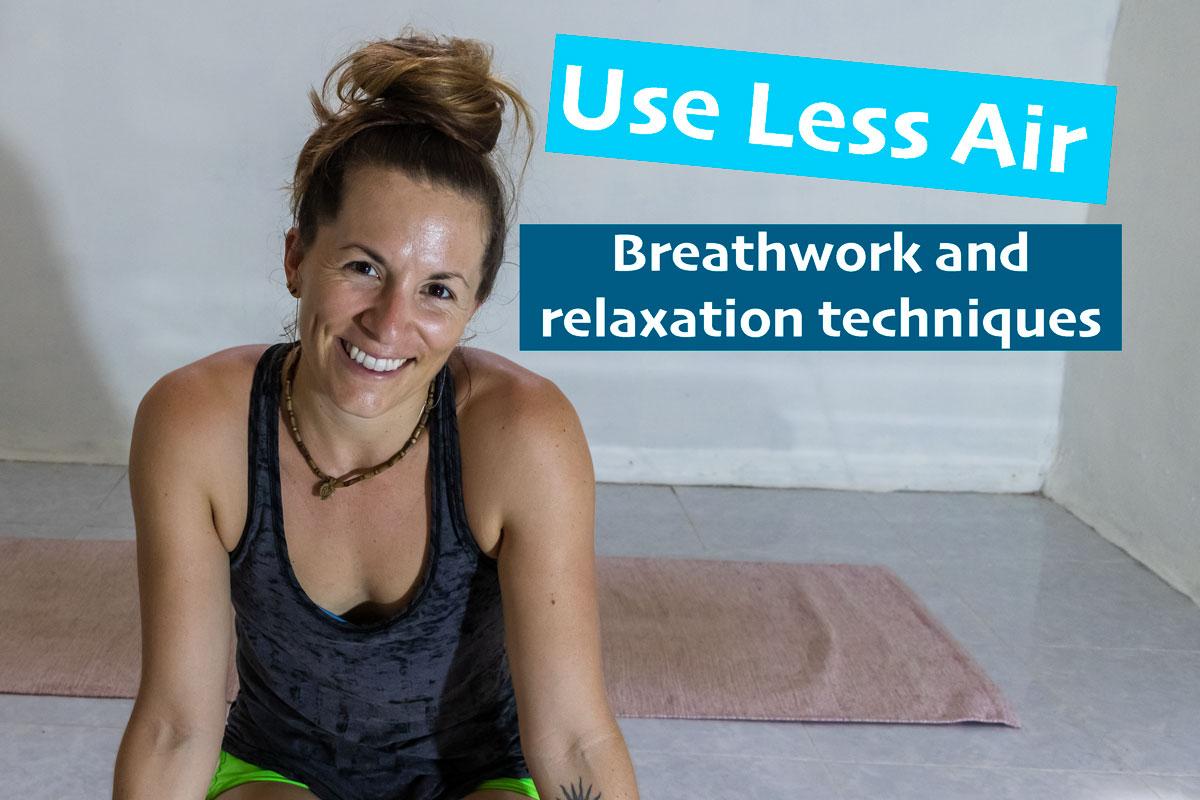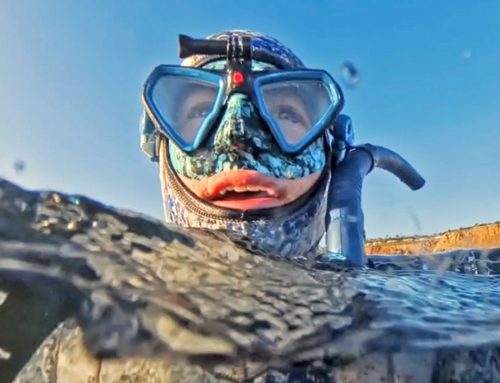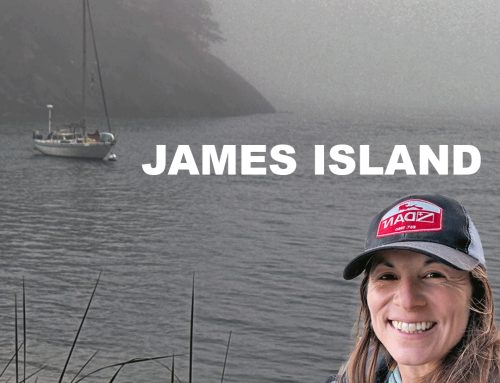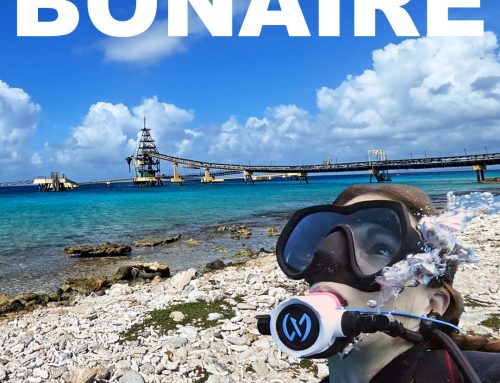Take a deep breath.
Didn’t that feel great? That sensation is one of the many great benefits of scuba diving. We focus on the breath each and every time we are underwater. Then, when we relax into deep breathing, we start to feel awake and can really get into the enjoyment of our dives.
Although beginners are taught to breathe deeply in their Open Water Course, they are rarely taught scuba breathing techniques to help improve the efficiency of their breath. Below we will be discussing the benefits of using breathing techniques, but if you want to go straight to some helpful exercises, check out our free Use Less Air online course right now.
What actually happens to our nervous systems?
The main goal with using scuba breathing techniques is to go into relaxation mode so that we are not wasting energy on unnecessary tightness, movement and stress. When we work on slow, even breaths, we are encouraging our parasympathetic nervous system to be triggered. This part of our autonomic nervous system is responsible for our ‘rest and digest’ bodily response system. This is the sister to our sympathetic nervous system which is the ‘fight or flight’ response which you’ve probably heard of before.
When the parasympathetic nervous system gets triggered, we find that our digestive systems work properly, our resting heart rate decreases and our respiratory rate also decreases. This is a huge benefit for us as divers because when we are relaxed, we’re not working so hard to make our bodies function, which means we’re not using as much air.
You thought dead air space was just in your snorkel!
Speaking of air, changing your breathing cycle to a much slower, fuller breath (around 6 breaths per minute instead of the average 10-20) changes the quality of air being used in the gas exchange process in your lungs. When we just depend on shallow breaths, we actually have a lot of dead air space that remains in our lungs. Dead air space is not replenished with fresh oxygen which means CO2 build up. If CO2 continues to build up, this can eventually lead to a blackout, which, obviously, is undesirable.
On the other hand, when we take the slow, full breaths, we are optimizing the system of gas exchange. We are creating the opportunity for the body to be efficient with the oxygen that comes in with the breath, which again means you will use less air.
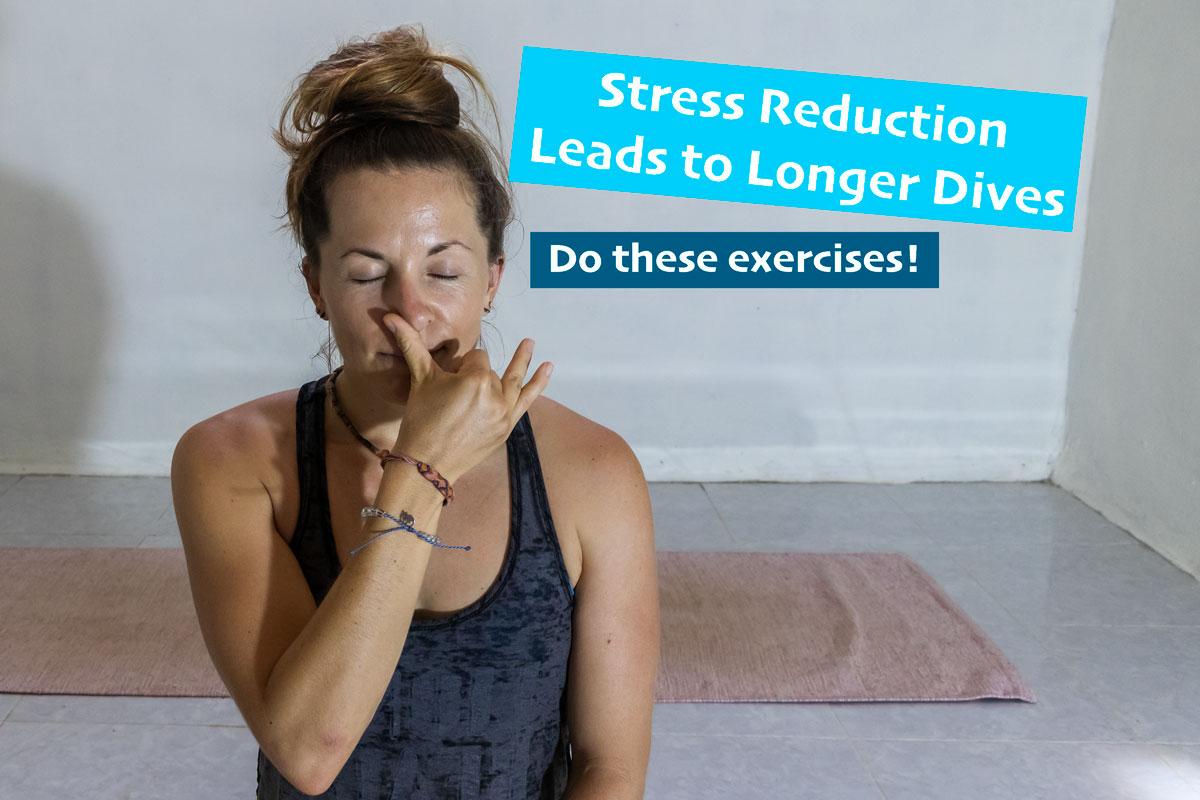
Relaxation is king
The key point in working on our air consumption is relaxation. It becomes a mind over matter kind of situation. Enjoyment underwater comes from leaving the worries behind and being fully aware in the present moment, in nature, just breathing. When we are able to relax and breathe deeply, we can start to consider advancing our skills and doing even more interesting things underwater such as sidemount diving or technical diving.
The perfect course for you
If you have ever gone diving and been the one using the most air on your dive team, then the simple practices from our free Use Less Air online course are excellent resources.
The main point about using scuba breathing techniques is to actually practice them. This is why we have created our first online course for you. There are many different ways to improve your experience underwater and the exercises that we teach are easy to implement into a simple daily practice.
Azul Unlimited
We teach responsible scuba divers and ocean protectors. The brand is run by PADI IDC Staff Instructor Sarah Valdez who teaches scuba diving in person and on YouTube. Now she travels around the states and Mexico in her van scuba diving in new and different places. Follow her adventures on YouTube, Instagram, Facebook, and TikTok or join the Azul scuba community on Patreon.
Azul Unlimited is partnered with Azul Komodo, a top PADI IDC Center in Labuan Bajo, Indonesia offering daily dive trips to the Komodo National Park. Contact their team directly for an unforgettable experience diving in one of the top dive destinations in the world!






